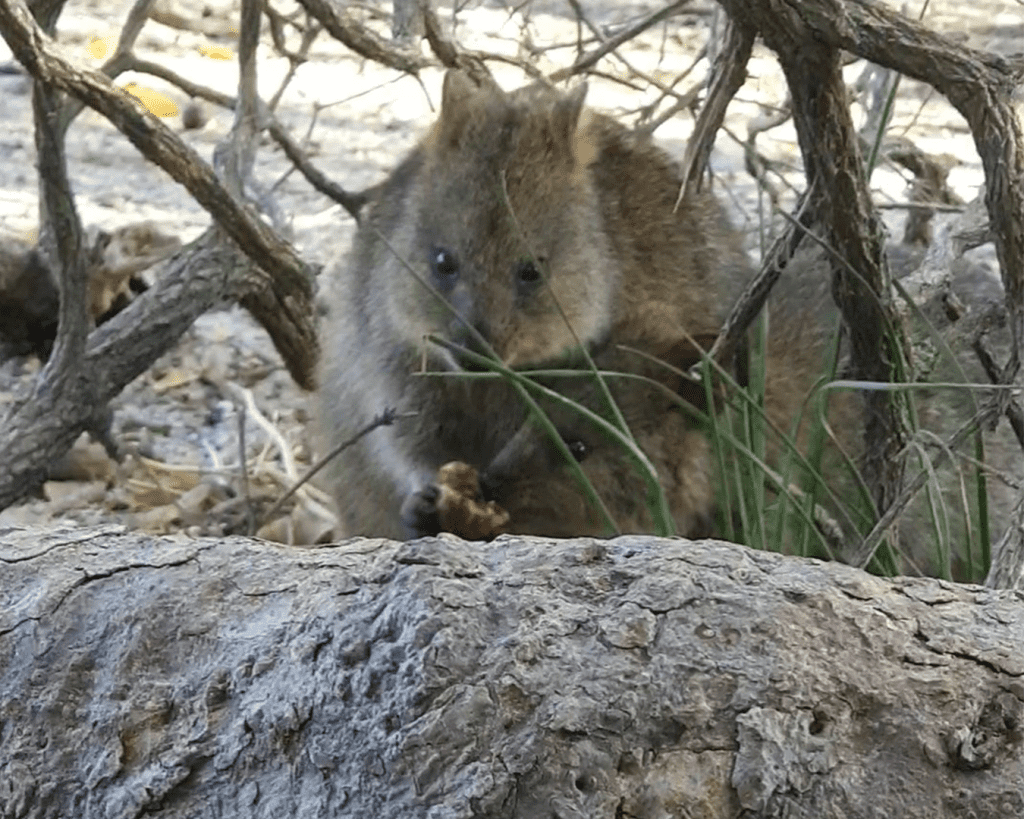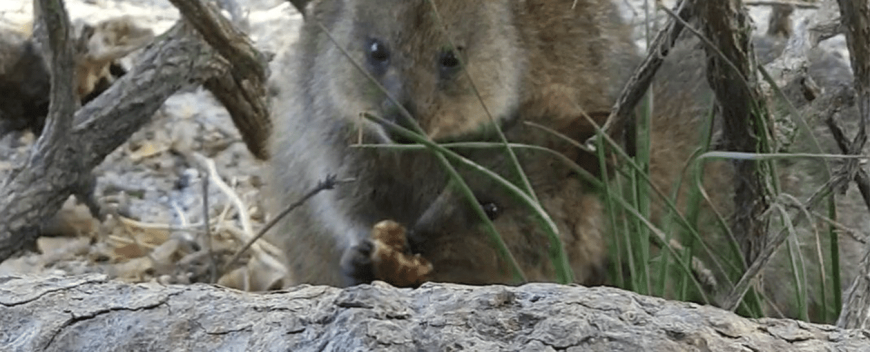Written by Matt
The social-media sensation #quokkaselfie back in 2012 sent the world into a snap-happy frenzy, shooting this small-sized, Western Australian local into the cultural stratosphere.
Over 10 years later, this touristic trend shows no signs of slowing down! With people from around the globe still making the trip to Rottnest Island/Wadjemup to get their own ‘smiley’ shot with their new furry friend.
A boom in tourism has seemingly boosted the population growth on the island. The sensationalized case of the quokka even points to the power of preserving a species using digital conservation strategies.
Can the Quokka truly be “the happiest”, “most photogenic” animal online?
Just this weekend, I flew over to Perth myself and used it an opportunity to get to know the REAL quokka, before all the hashtag hullabaloo.
The Quokka (Setonix brachyurus)
– The name of this internet star is no modern invention! It takes basis from one of the words used by the local Aboriginal Noongar people – ‘Quak–a’
– Don’t be fooled by that rat-like tail, the Quokka is a Marsupial. This places them in the same group as other Australian natives – Kangaroos, wallabies, and koalas. All of which have a pouch in which they raise their young.
– You might spot them everywhere on Instagram feeds, but in the wild the Quokka is only found living in Western Australia (endemic species).
– There is unfortunately no scientific support for Quokkas ‘smiling’ in photos. The theory is their ‘adorable’ open mouthed expression might have more to do with simply getting rid of excess heat. Like the way a dog cools down by panting.
– Their ‘friendly’ behaviour is more accurately viewed as ‘inquisitiveness’. Volunteers on the island refer to the less camera-shy individuals (which hang around the touristic centre) as “townies”.

For the best experience for yourself (and the Quokkas) I recommend:
Like any wild animal, they should be treated as such.
- Respect their boundaries
- Keep a safe distance
- NO TOUCHING
Keep in mind Quokkas have sharp teeth too! You don’t want to be one of the annual cases of accidental bites on your island getaway.
They are protected animals and there are fines of $300 for touching this vulnerable species.
Don’t just take my word for it though. The Rottnest Island Authority (RIA) continue their conscious effort to translate the demand for photo opportunities to at least provide an important one for wildlife education.
Read more at their website about how to interact with this species.
Ever spotted a quokka sleeping on its tail? With their head resting on top of it all cosily curled up in a ball. Now that is something to be seen (and perhaps sensibly snapped) to be believed!
Read more about Quokkas and how you can help at the following WWF listing –
https://www.wwf.org.au/what-we-do/species/quokka#gs.rxvx6f



